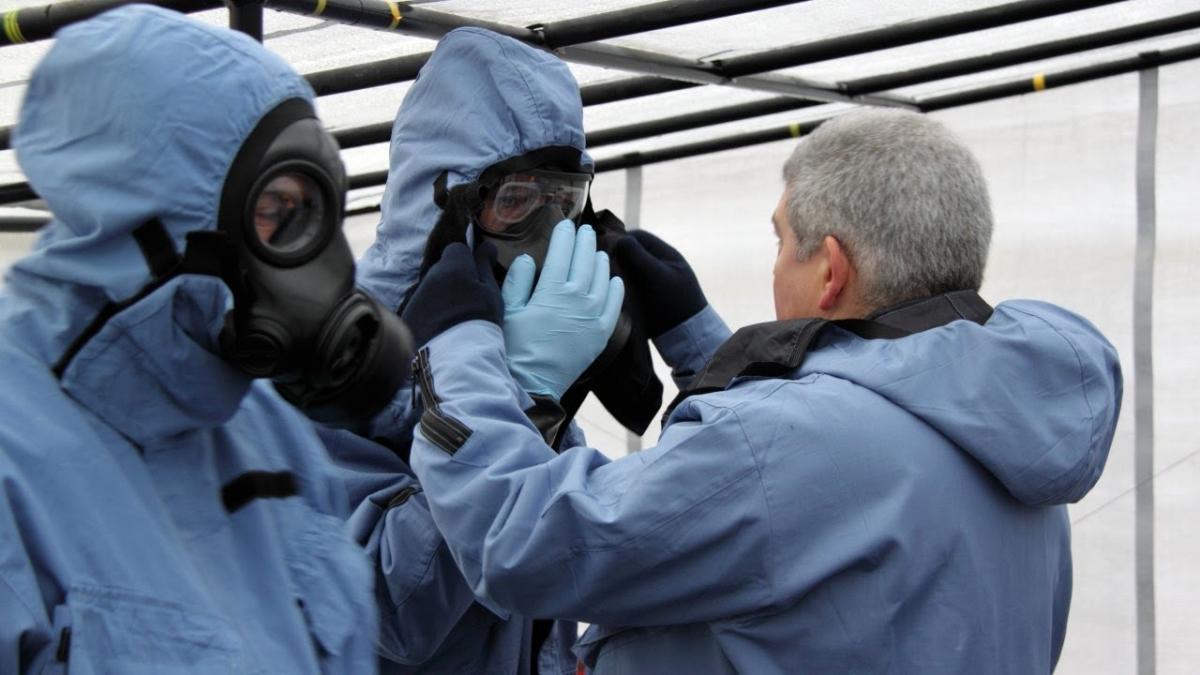
Since 2012 there have been scores of suspected chemical attacks in Syria – possibly more than 200. Of those, only a few have been investigated by the Organisation for the Prohibition of Chemical Weapons (OPCW) and only three have resulted in significant consequences for the alleged perpetrator.
The first was in 2013 following the nerve agent attack on Ghouta when international pressure forced the Assad regime to join the Chemical Weapons Convention and agree to the destruction of its stockpile along with the dismantling of production facilities. The two other cases – Khan Sheikhoun in 2017 and Douma in April this year – resulted in airstrikes by western powers.
Now, as the regime prepares for what promises to be a major assault on Idlib province, the US has said it will respond to any further chemical attacks "with stronger military force than it has used in the past".
One problem with this is that on past form it is unlikely to deter the Syrian regime. It's reminiscent of Obama's famous "red line" warning in 2012 which was followed, a few months later, by the first chemical attacks. Where Assad is concerned, stern warnings from the US invite a show of defiance – preferably one that makes any military action by western powers look ill-judged and ineffectual.
Another problem – a much bigger one – is that punishing chemical attacks with bombs doesn't actually reinforce international law and may even have the opposite effect. In Syria, two highly-publicised attacks (one of them, in Douma, still not confirmed by the OPCW) have drawn punitive military action but the regime appears to have got away with countless others.
Aside from the politics of the Syrian conflict, an important principle is at stake here. The Chemical Weapons Convention bans the use of chemical weapons and, since it was established in 1993, has resulted in at least 80% of the world's known stockpiles being destroyed. Efforts are continuing to destroy most of the rest and, to date, only three countries – Egypt, North Korea and South Sudan – have neither signed nor ratified the convention, plus Israel which has signed but have not ratified.
Though often unacknowledged, the convention has been a major international success story – the result of laborious step-by-step efforts over the years. Events in Syria have put it in jeopardy and, unfortunately, there are no quick fixes.
The resort to punitive airstrikes is driven partly by feelings that something must be done and, probably, in Donald Trump's case by a desire to put American firepower on display. Some, more reluctantly, view it as the only practical option because legal and diplomatic routes have been blocked – at least until recently. While the OPCW was allowed to investigate chemical attacks in Syria it was not allowed to identify the culprits, and further action through the UN security council was stymied by Syria's ally, Russia.
That situation changed significantly in June, however, when the OPCW's member countries voted by a large majority (82 to 24) to let investigators name "those who were the perpetrators, organisers, sponsors or otherwise involved" in chemical attacks.
One little-noticed effect of this is that it makes punitive airstrikes difficult to justify without first waiting for the OPCW to announce its findings (a process that can take months, if not longer).
Another effect is that it shifts the chemical weapons issue more in the direction of international law – which is where it belongs. Flouting of the ban should be treated in much the same way as war crimes: by meticulously gathering evidence with the aim, ultimately, of prosecuting those responsible.
It's a slow, painstaking business and not the kind of dramatic action that appeals to Trump but, over time, it offers the best hope for maintaining the taboo on chemical weapons.

 RSS Feed
RSS Feed
